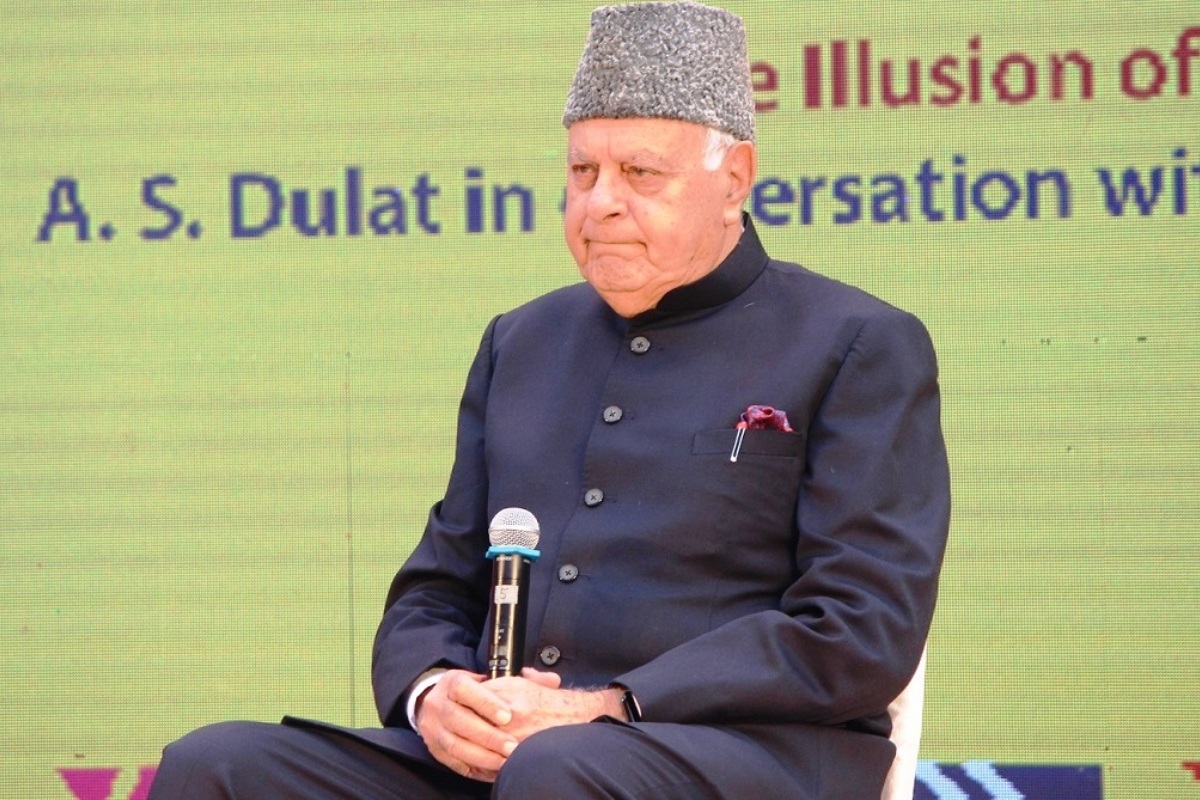AAP councilors protest against cancellation of mayoral polls
The party may move the court after taking legal opinion on the matter, said AAP leader Durgesh Pathak.
J&K government’s spokesman, Rohit Kansal, had on Monday made it clear that provisions have been made in the new land laws that the agriculture and horticulture land can be sold only to an agriculturist from within the Union Territory like in the neighbouring Himachal Pradesh and Uttarakhand.

(Photo: IANS)
The BJP on Tuesday targeted the People’s Alliance for Gupkar Declaration (PAGD) led by National Conference chief Farooq Abdullah by questioning their “complete silence” against Imran Khan declaring Gilgit-Baltistan (GB) the 5th province of Pakistan. GB was a part of Jammu and Kashmir under the illegal occupation of Pakistan.
BJP spokesman, Brigadier Anil Gupta (Retired) in a statement said that the otherwise vocal PAGD has not raised even a murmur against Imran Khan’s decision.
“It’s obvious all hullabaloo of reunification and restoration of Article 370 by the PAGD is being done at behest of Pakistan and China to keep the pot boiling here. Pakistan has not only changed demography of POJK but is now blatantly annexing Gilgit Baltistan part of POJK. What does their silence imply? That is why I call this declaration and the Gupkaris anti-national”, Gupta added.
Advertisement
On the other hand the PAGD, while rejecting the claim of the government’s spokesman that the recent land laws take care of residents of J&K, alleged that the “laws now introduced through amendments are not only against people of Jammu and Kashmir but undemocratic, unconstitutional and backward looking with only aim to disempower people and change the demography”. “The statement of the government’s spokesman was a bizarre attempt to distort facts, weave lies and mislead people ”, the PAGD alleged.
The PAGD claimed that “the real object of repeal of the basic land laws and massive amendments to other laws is to push in and implement the agenda of effecting demographic change and disempowering the people of Jammu and Kashmir”.
“Jammu and Kashmir was first in the country to implement the concept of “land to tiller” by enacting Big Landed Estates Abolition Act 1952 followed by Agrarian Reforms Act 1976 restricting the land holding to twelve and half acres and ending the exploitative practice of “absentee landlordism” and whosoever calls it archaic would be guilty of ignorance of the history of Jammu and Kashmir. It is because of the timely land reforms that there are no starvation deaths occurring in Jammu and Kashmir, no farmer suicides have been ever reported and everyone in Jammu and Kashmir has available three fundamental necessities- food, clothing and shelter, the position that is now sought to be reversed by making massive assault on the land law regime”, the PAGD claimed.
The statement asked as to how can Alienation of Land Act be termed as archaic when it prohibited transfer of land to a non state subjects thus protecting the interests of Permanent Residents of Jammu and Kashmir and at the same time made a provision for transfer of land by mortgage to organisations like Industrial Development Bank of India, Industrial Credit and Investment Corporation of India to keep pace with industrial development.
J&K government’s spokesman, Rohit Kansal, had on Monday made it clear that provisions have been made in the new land laws that the agriculture and horticulture land can be sold only to an agriculturist from within the Union Territory like in the neighbouring Himachal Pradesh and Uttarakhand.
Kansal described the new land laws as modern as “progressive” even while affording adequate protection against alienation of land to outsiders. A number of protections have been built into the new land laws on similar lines as has been enacted in other states such as Himachal Pradesh and Uttarakhand. The government has repealed 11 land laws that existed in the erstwhile state of Jammu and Kashmir that were regressive, intrinsically contradictory and outdated and replaced these with a set of modern, progressive and people friendly provisions, he said.
Advertisement